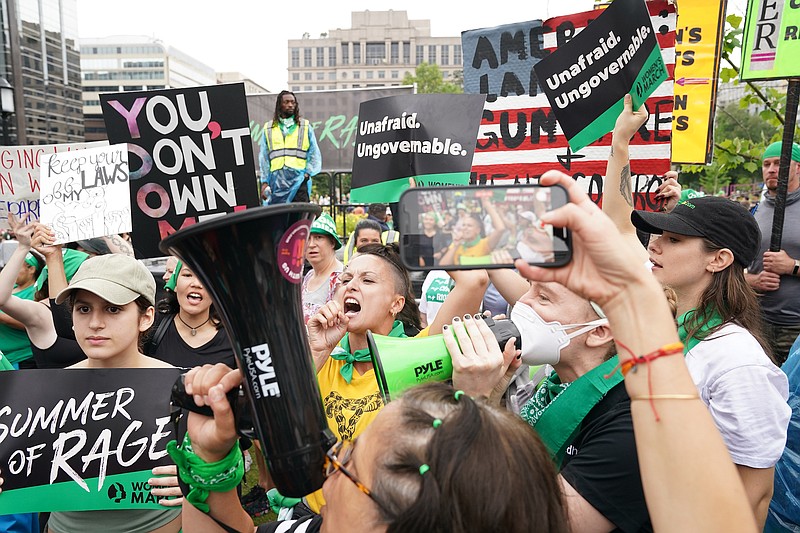This should've been a moment for celebration.
A time to celebrate the continuing expansion of American rights, and especially a woman's right to make her own choices about her body and her future. A time to celebrate the Constitution as not merely the legalistic, literal words laid down by the 18th century founders, but rather as a dynamic document that can speak to society's 21st century needs.
But no. On the 50th anniversary of the Supreme Court's Roe v. Wade decision declaring abortion to be a woman's constitutional right, we are instead still reeling in shock at how the clock has been turned backward.
With the court's radical about-face in Dobbs v. Jackson Women's Health Organization last June, which overturned Roe as if it had never existed, the country has been suddenly tossed into the past.
On the day the Roe decision was announced, many people believed the abortion debate was over.
"The court's 7-2 ruling could bring to an end the emotional and divisive public argument over what should always have been an intensely private and personal matter," editorialized The New York Times.
That couldn't have been more wrong.
The Los Angeles Times offered a more accurate glimpse into the future when it quoted Cardinal Patrick O'Boyle, the Roman Catholic archbishop of Washington, saying: "I do not believe we can relax our stance on such a widespread evil lest our people think that because of the Supreme Court's decision, abortion no longer is murder."
That was a declaration of war.
And so began 50 years during which anti-abortion forces never backed down. Speaking on behalf, they said, of millions of unborn babies, the "right to life" movement spread.
They passed restrictive laws seeking to chip away, state by state, at Roe. They blocked abortion clinics. They passed out photos of aborted fetuses. Extremists threatened harassment, vandalism and violence, and sometimes carried it out.
I accept that most in this movement sincerely believe that innocent lives are being taken. I don't think that the sole aim of most abortion opponents is to "control women's bodies."
But I don't believe some Americans have the right to tell others how to live their lives, or to impose their own morality on women's most personal decisions.
A pregnant woman should be allowed to determine her own future and make decisions about her own body. The rights of a fetus -- whether you consider it "alive" or not in its early development -- don't outweigh those of the mother.
But the overturning of Roe also has ramifications that go beyond abortion. Roe was not a stand-alone case, but was one in a long line of decisions protecting Americans from government interference in personal, private, intimate decisions involving physical autonomy and bodily integrity, family relationships, child rearing and procreation. That includes the right to use contraception, to marry whom you want and to engage in the sort of consensual sex you want in your own home.
Thanks to Justice Samuel A. Alito Jr.'s ruling in the Dobbs case, however, these decisions are all potentially endangered because the rights they confer are not specifically enumerated in the Constitution.
Alito tried to suggest those decisions were not imperiled, but they obviously are.
At this particular moment in history, when we should be celebrating a half-century of progress, it is depressing to be grieving instead for rights that have been withdrawn.
The most that can be said on this sad anniversary is that the fight for reproductive rights will continue, despite the court's ruling. For another 50 years, if that's what it takes.
The Los Angeles Times
